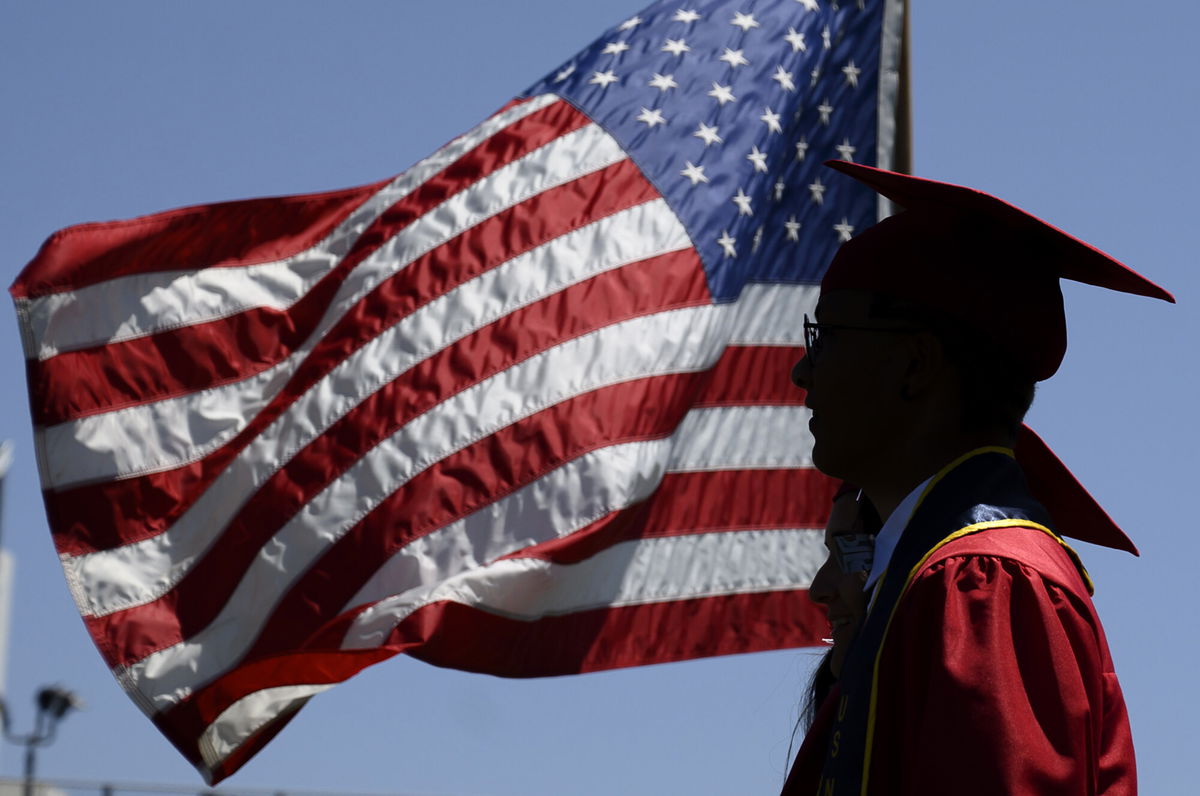Opinion: NAACP CEO: Biden’s reported plan to cancel student debt isn’t enough

With the simple stroke of a pen
Opinion by Derrick Johnson and Wisdom Cole for CNN Business Perspectives
With the simple stroke of a pen, President Biden has the unique opportunity to unlock financial freedom for countless Black Americans and low-income communities. But according to CNN reporting, he might cancel just $10,000 of student loan debt per borrower for those earning less than $125,000 a year. That would do little to help.
Black Americans have been disproportionately devastated by student loan debt. Four years after graduating, they hold an average of almost $53,000 in debt, almost double the $28,000 average White Americans hold. And they typically end up owing 6% more than they initially borrowed, while White borrowers owe 10% less. Canceling just $10,000 of debt is like pouring a bucket of ice water on a forest fire. It hardly achieves anything — only making a mere dent in the problem.
Biden must recognize and regard student debt as a racial and economic justice issue. Canceling $50,000 or more per borrower would free millions of Americans, allowing them to become more active participants in the US economy. It would also drastically reduce the racial wealth gap. And, after generations of racial oppression, it would finally open the door for so many Americans to become homeowners and generate wealth, not only for themselves, but also for their children and grandchildren.
America’s economy has made it impossible for countless Black families to build intergenerational wealth, as they have faced discriminatory practices in education, homeownership and employment. Take homeownership, for example. Owning a home is the gateway to achieving the American Dream. It offers the prospect of generating intergenerational wealth. And yet, just 46% of Black Americans own a home, while 76% of White Americans do. The tainted legacies of slavery and Jim Crow continue to further widen the socioeconomic racial gap between Black and White families, with Black neighborhoods continuing to be undervalued and school districts underfunded and lacking in student resources.
It’s a vicious cycle: Because Black Americans have less wealth to start with (Black households have almost 10 times less wealth than White households), they have to take out larger loans, which puts them further behind when they graduate and enter an economy that is already stacked against them. As such, many have depended on predatory student loans, which have only made the problem worse. These loans carry high interest rates and fees, and terms that make them nearly impossible to repay. With little to no access to generational wealth, taking on these high-interest loans is often the only way for Black students to attend college. And with Black students paying their debt at an average annual rate of 4%, compared to their White counterparts at 10%, their student debt interest rates only continue to grow over time, resulting in many Black graduates defaulting on their loans.
Many privileged and predominantly White Americans, who inherited generational wealth, have had the fortune of not depending on expensive loans to begin with. They will likely benefit from $10,000 in cancellation to cover the remaining sum. But what about those in our society who did not inherit generational wealth?
We are fed up. The NAACP has been calling for a minimum of $50,000 in student loan debt cancellation because our research indicates it is what is necessary to make a meaningful difference. The goal should be to see the most amount of relief for the highest number of borrowers. Even so, President Biden has indicated that he is not considering a $50,000 debt reduction. But canceling just $10,000 in debt would be bad public policy and a devastating political mistake.
Racial disparities in the education system have only existed because lawmakers have allowed them to. This is Biden’s chance to right the wrongs once and for all, and leave behind a memorable legacy of equity and racial and economic justice.
The-CNN-Wire
™ & © 2022 Cable News Network, Inc., a Warner Bros. Discovery Company. All rights reserved.